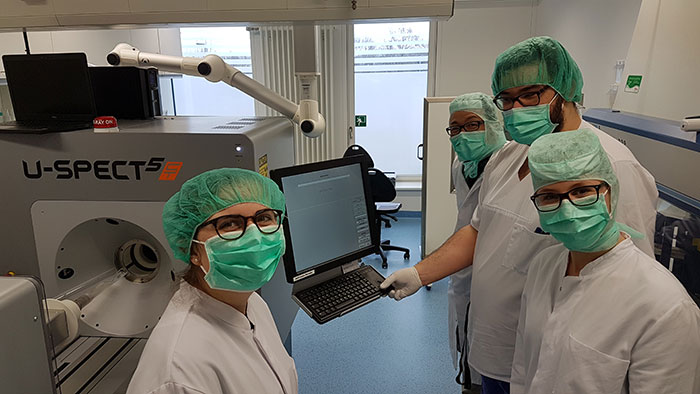As part of the methodology course "Functional Neuroimaging", the students received a practice-oriented introduction to functional and molecular neuroimaging technologies. Prof. Dr. med. Andreas K. Buck and Prof. Dr. med. Dr. rer. nat. Takahiro Higuchi, both experts in nuclear medicine and translational research, presented current experimental approaches in neurobiology and both established and innovative molecular imaging techniques. As an introduction to the topic, the students received an explanation of the anatomical and functional structures of the brain in small animals and humans.
Practice-oriented training
The students of the Elite Graduate Program "Translational Neuroscience" got to know preparation and imaging techniques which are used to examine the function and pathomechanisms of neuronal model systems. The clinical aspects of neurobiology with focus on molecular, cellular and physiological mechanisms were particularly reflected on during this course. The lecturers enlightened clinical aspects of functional neuroimaging using examples from among other patients with neurodegenerative diseases and dementias.
Text: Angela Dreykluft, Elite Graduate Program "Translational Neuroscience"


